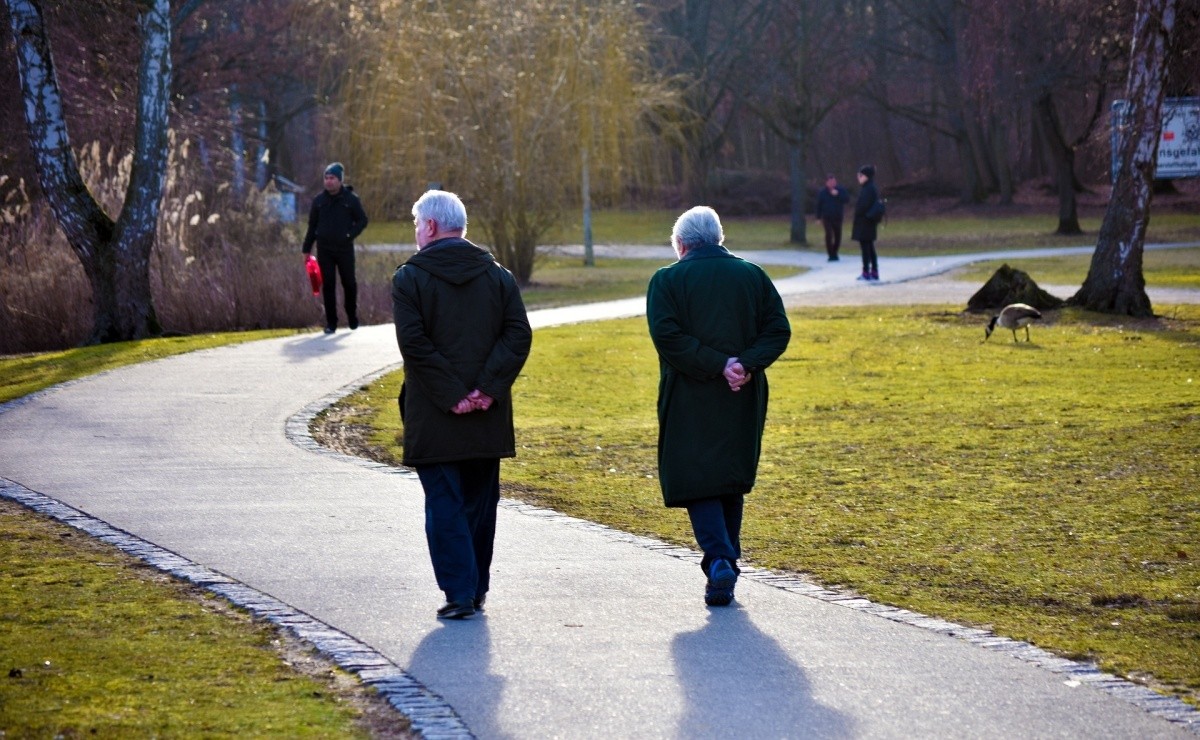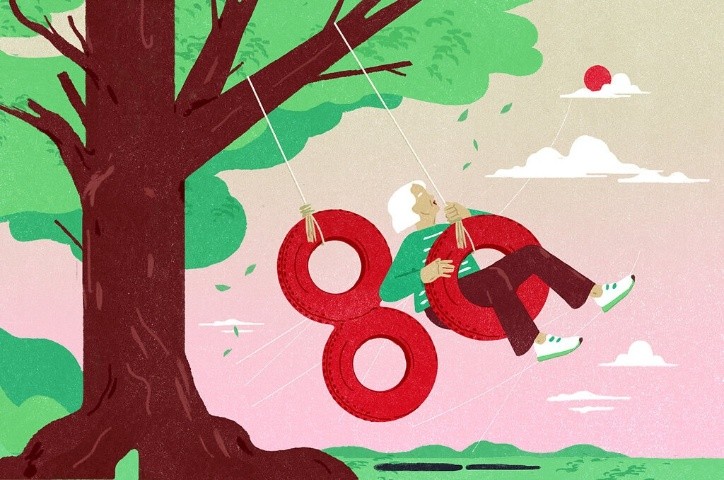
When a woman in her fifties in my gym found out that I was about to turn 80, she exclaimed, "The 80s are the new 60, and you are a great example to all of us!"
Reaching 80 years is a privilege that few have, it is a slower sunrise and a faster sunset, people treasure more the simple things in life, love, hugs, talk, coffee and good company, What does it take to have a happy and active old age? In this interesting story we tell you.
At least I’m in good company:
Dr. Anthony Fauci, the national infectious disease guru, is five months older than I am, holding his own even under political fire. Nancy Pelosi, the 81-year-old Speaker of the House of Representatives, also resists fierce opposition well,
Anthony Hopkins, 83, an Oscar winner for Silence of the Innocents and a frequent nominee, won again this year for The Father. Morgan Freeman, also 83, performs with a distinguished voice second only to his formidable talent. It has four movies and a television series to premiere.

Bernie Sanders, a former presidential hopeful who will turn 80 in September, remains a force to be reckoned with in the US Senate. Paul Simon, a month younger than Sanders, has won 12 Grammy Awards as a singer-songwriter in his six-decade career. (He recently sold his song catalog to Sony for about $ 250 million.)
And the list goes on. As my late husband, who did not reach that milestone, would have said, "80: not a record, but not a bad average." In fact, many have done much better. Every day I read or hear about people in their 90s who are still remarkably active and productive
Check out this recent article in the Times about the indefatigable architect Frank Gehry. At 92, his latest project is a spectacular urbanization in downtown Los Angeles. When asked if he was considering retirement, he replied, “What would I do? I enjoy these things ”.
For me, that’s the secret to a happy, vibrant old age: strive to do what you love for as long as you can. If the vicissitudes of life or the ailments of age prevent a favorite activity, modify it or replace it with another. I can no longer skate, ski, or play tennis safely, but I can still bike, hike, and swim. I consider that daily physical activity is as important as eating and sleeping. I do not accept excuses.
And, as you can see, I keep writing, although it often takes me longer than before. In my work as a health columnist, I am paid to continually educate and inspire myself with the research and interviews I do for my weekly column. They keep my brain and spirit alive. And when a word or its spelling escapes me, Google and my editors are there to fill in the gaps.
The cohort of Americans who have lived eight or more decades is steadily increasing and is projected to grow faster than the cohort of young people under 18 for at least the next 40 years.
In fact, as the number of people increased in the last decades of life, morbidity and mortality were increasing among middle-aged men and women even before the pandemic. Today the average newborn is not expected to reach 80 years of age, thanks in large part to poor diet, lack of exercise, and increased obesity.
Assuming that most people choose a long and fulfilling life, if nature permits, what does it take to do so? Why is it the growing number of octogenarians and beyond that are accomplished and continue to achieve?
Through my decades of health information, many clues have emerged. I have already alluded to the importance of regular physical activity, which supports a healthy brain and body. Assuming you don’t smoke, which was my husband’s downfall, nature tends to take good care of one for half a century. From then on, it’s up to you.
If you don’t exercise regularly, you can expect a loss of muscle strength and endurance, coordination and balance, flexibility and mobility, bone strength, and cardiovascular and respiratory function. In other words, a sedentary lifestyle is a recipe for chronic disease and decline.
Drop all excuses, as Todd Balf did after being partially paralyzed after spinal surgery for cancer. Although she had long shied away from submerging in water, with a physical therapist as a coach, she finally perked up and found that swimming from one side of the pool to the other encouraged her body and soul.
Of course, like any machine, to maintain maximum levels of activity the human body requires quality fuel. When we grew up, most of us now in our 80s or older got rid of the plethora of ultra-processed foods that now line every supermarket shelf. My father, the family grocer, was a huge fan of oats and grated wheat, and fresh fruits and vegetables.
Eating out was an occasional treat (and still is for me). Most of the meals were prepared and eaten family style at home. Fast foods? Maybe a hot dog when we were biking to Coney Island or celebrating my birthday at a Brooklyn Dodgers game. He was in his early 20s when McDonalds announced with great fanfare that it had just sold 600,000 hamburgers. (The company stopped counting in 1994, after reaching 99 billion hamburgers served.)
But exercise and nutrition are not enough. Studies suggest that motivation, attitude, and perspective are equally important to a long, healthy, and fulfilling life. I was still in high school when my mother died of cancer at age 49, and her untimely loss became a lesson to live each day as if it were your last, with an eye to the future in case it wasn’t.
I entered college with plans to become a biochemist and discover clues to saving cancer. But working in a laboratory seemed boring and lonely to me, and in my first year of my career I realized that my true love was learning about what others were discovering and communicating that information to the public.
So I married biochemistry with journalism, pursued a satisfying career in scientific writing focused on personal and public health, and, like a horse in blinders, I never looked back.
My advice to students: try to combine your passion with your talent and you will have the best chance of a rich and fulfilling career. I also recommend that you choose a supportive life partner who is willing to share everyday tasks and do extra work when needed.
Because I was raised to save, my whole life I have shopped at bargains and bargains and invested the proceeds in scholarships for deserving students and fabulous nature, hiking and biking trips for myself, my family and my friends.
Do I regret something? I regret that I studied French instead of Spanish in high school and I keep trying to learn the latter, a much more practical language, in my view. I regret that I never learned to read fast; Whether for work or leisure, I read slowly, as if everything in print were a complex scientific text. Although I have visited all seven continents before my 50th birthday, I was never able to see orangutans in their native Borneo or gorillas in Rwanda. But now I am content to see them up close on public television.
When I retire, I would like to volunteer with young children. They lighten my pace, warm my heart and enrich my soul. Their joie de vivre and innate curiosity foster hope that the world of the future will be better.